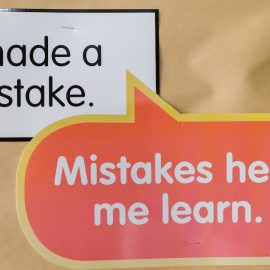

This article is an excerpt from the Shortform book guide to "New Sales Simplified" by Mike Weinberg. Shortform has the world's best summaries and analyses of books you should be reading.
Like this article? Sign up for a free trial here .
Are you struggling to get sales? What do you think the issue is? Do you think the problem is systemic (to do with the system) or individual (to do with the people)?
According to sales expert Mike Weinberg, if your company’s sales department is struggling to hit its goals, the reasons can be both systemic (to do with the company’s processes) and individual (to do with the sales reps). In his book New Sales Simplified, he outlines possible systemic and individual factors that could be undermining your ability to acquire new business.
Here’s a quick look at the issues that could be preventing you from getting sales.
Systemic Issues Hindering New Sales
First, here’s a look at the systemic issues undermining sales success:
- Salespeople haven’t learned to prospect: Many salespeople, especially those who joined the profession prior to the 2008 recession, don’t know how to “hunt” for new business. When the economy was strong, they didn’t have to learn to grow their customer base—nurturing their relationships with current customers was sufficient to hit their sales revenue goals. But simply managing existing accounts isn’t enough to sustain and grow sales in the long term, especially when the economy slows.
- New sales models reject the value of prospecting: Sales experts decided that pursuing customers through cold calling didn’t work; inbound marketing, or attracting customers through social media and other methods was more effective. Since most reps are reluctant to do cold calling anyway, they’re happy to have an excuse to avoid it. But selling isn’t passive—it’s active. Tools such as social media should augment rather than replace prospecting.
- Sales managers don’t teach prospecting. Instead, they focus on data analysis: Managers used to go out in the field with new reps to show them the ropes—however, both managers and reps now spend more time entering data in Salesforce (a sales, marketing, and analytics application) than engaging in essential activities like calling a prospect to get a meeting. Updating the system is a greater priority than selling.
Individual Issues Hindering Sales Reps
Besides these systemic problems with the sales profession, there are 12 reasons individual reps fail at acquiring new business, even when they excel at other aspects of selling. Some stem from a lack of knowledge while others are personal shortcomings.
Insufficient Knowledge
1) The rep hasn’t identified good prospects and diligently pursued them: They haven’t strategically identified the potential customers most likely to buy their product or service. Or if they have a good list, they don’t stay focused on pursuing the prospects—for instance, they leave one message or get one refusal, and they move on without following up. Chapter 5 explains how to strategically develop a target list.
2) Reps don’t manage their time productively: They’re often distracted and reactive, using their time for whatever comes up (which is never new business development). But generating new business requires scheduling dedicated time on your calendar for prospecting and treating that time as inviolable. It also requires creating and following a personal business development plan. Chapter 14 looks at time blocking and executing a new business plan.
3) The rep lacks a compelling story: Reps who can’t articulate a compelling story can’t sell because, without it, their pitch is boring, self-focused, and unclear on the message. Chapter 8 explains how to craft an effective story about why your company and offerings are a good fit for the customer and better than any alternative.
4) The rep doesn’t know how to conduct an effective face-to-face sales call: Getting a face-to-face meeting with a prospect is an essential step in new business development, but you also need to know how to handle a meeting effectively once you get it. Many reps play it by ear or follow the customer’s lead. However, to differentiate yourself from the competition and discover customer problems you can solve, you need to gather information by asking the right questions and listening for clues about what the buyer is interested in. Chapters 10-11 explain how to structure a face-to-face call.
Unhelpful Behaviors
Besides a lack of knowledge, salespeople are often hampered by their own bad behaviors, which cost them sales. Here are some of the most common—most are related in some way to procrastination.
5) They wait for something from their company or the potential client before they act—for instance, reports, marketing materials, or a callback. While they’re waiting, a competitor may win the account, or the buyer will be shopping around and will have already decided what they want (reducing the salesperson’s ability to influence the prospect’s choice).
6) They keep hoping for a specific deal that’s in the works to come through. This puts all the salesperson’s eggs in one basket, increasing the risk of failure. Instead, the rep should have multiple deals at various stages in the works to increase the likelihood something will come through.
7) They’re reluctant to make cold calls and therefore procrastinate. They delay or seldom make cold calls; when they do, they’re so uncomfortable and lacking in confidence that their calls are ineffective. But generating new business requires dedicating time each week to calling prospects and following through. Chapter 9 explains how to confidently make effective cold calls.
8) They spend too much time on customer service: They babysit existing accounts—for instance, tracking the order and invoices, and listening endlessly to complaints. Of course, salespeople need to take care of existing customers, but many overdo it at the expense of acquiring new customers—because it’s more comfortable to deal with people they know, or they feel important when they respond to a request. But this is a service role, not a sales role, and there’s an opportunity cost: not growing your company’s customer base.
9) They spend their time on office social activities: Salespeople sometimes get involved in too many office activities aimed at building company culture—for instance, planning the company Halloween party or serving on the safety task force. These activities can be fun, especially for extroverted salespeople. Further, companies often evaluate employees on how they get along with others and contribute to the team. But being seen as nice at work shouldn’t distract you from acquiring new business, which is essential to your success as a salesperson.
Counterproductive Attitudes
Counterproductive attitudes also hinder sales because prospects sense and are turned off by them. Or, the reps’ attitudes hold back their development or success.
10) The sales rep isn’t likable and doesn’t adapt to the customer’s style: As the sales adage goes, customers buy from people they like, so having an unpleasant personality, a negative attitude, or habits such as not looking professional will undermine sales success.
Many reps who are unlikeable lack emotional and social intelligence—that is, the ability to manage their emotions, relationships, and others’ perceptions of them—and therefore struggle to build relationships with clients. For example, they fail to adapt their communication style to their client’s: They may be overly talkative with a reserved client and not pick up on when the client is uninterested or irritated.
11) They’ve stopped developing professionally: Many reps don’t invest in their professional development. They believe the cliché that “either you can sell or you can’t” and think there’s nothing new they can learn about sales. But you can’t succeed in any field, sales included, without continuous learning. Another reason to keep honing sales skills is that customers are becoming increasingly resistant to existing sales approaches, making it important to learn new strategies.
12) They’re not cut out to be in sales: Some people aren’t suited to be sales hunters for two reasons:
- They’re too “relational,” or focused on building relationships, which makes them shy away from the uncomfortable aspects of winning new accounts such as risk, conflict, and resistance. Developing new business requires not accepting the first “no” and pushing past resistance.
- They’re too analytical and process-oriented and therefore, too slow to act. They have to have all the data and facts before acting because they fear being wrong or embarrassed. However, generating new business takes persistent action.
How Companies Undermine Sales Success
When a company’s sales are falling short of its goals, the reasons may lie in the company’s own actions and policies rather than the competence of the sales team. Here are some common company-driven issues that undermine sales success:
1) The company isn’t providing a clear strategy or mission: The executive team’s job is to decide and articulate the company’s strategy; the sales team’s job is to execute it. However, a muddy strategy often leaves salespeople confused about their focus and therefore, less effective.
The company should clearly define:
- Why it exists
- The direction it’s going and why
- What the company sells and why
- Which markets are the priority
- How it’s positioned in those markets
- The competitive environment
- The company’s differentiators
- Its pricing strategy
2) The company and its culture look down on the sales team: Many companies have an anti-sales culture that kills the passion salespeople must have to sell successfully. For example, other departments complain that sales reps are using too many samples, aren’t using the right marketing materials, or are spending too much on meals with clients. However, to grow their business, companies need to be sales-focused—that is, to fully support sales efforts and provide whatever the team needs to close deals.
3) Reps spend more time on servicing accounts than hunting for new business. Requiring salespeople to babysit customers rather than hiring customer service people is the biggest obstacle to new business development. Customer service tasks that could often be handled by others include: quoting, taking orders, handling complaints, and walking orders through production.
Companies have few sales reps to begin with who consistently bring in new business (they make up about 10-15% of a typical sales team). At the very least, these people should be freed up from routine account management to do what they do best.
4) The company’s sales compensation plan is illogical: Compensation plans are a sensitive topic in sales because people’s livelihoods depend on them. However, most companies get two things wrong and, as a result, their plans disincentivize the behavior they want (new sales development):
- The base pay for a rep is usually too high: Salespeople are typically paid a base or fixed rate plus a commission. When the base rate makes up too great a proportion of total compensation, top performers and mediocre performers earn close to the same amount (which doesn’t motivate people at either end of the scale because top people are underpaid and poor performers are overpaid). Instead, compensation should reflect results.
- The plan treats all sales the same when it comes to paying commissions: Commissions are typically calculated based on total sales (X total sales times Y commission rate equals commission). This treats all sales as equal, but they aren’t—acquiring new sales is more challenging than servicing existing accounts.
If companies want new business, they need to decrease the base pay and increase the rewards to encourage reps to focus on sales hunting.

———End of Preview———
Like what you just read? Read the rest of the world's best book summary and analysis of Mike Weinberg's "New Sales Simplified" at Shortform .
Here's what you'll find in our full New Sales Simplified summary :
- A step-by-step plan for strategically selecting sales targets
- How to develop sales weapons
- How to consistently generate new sales






